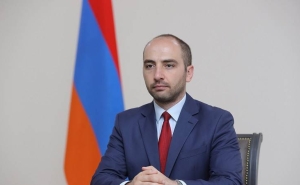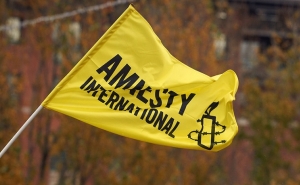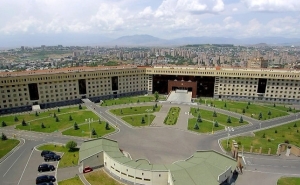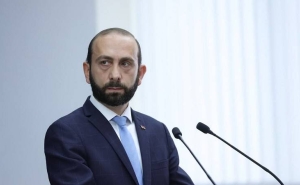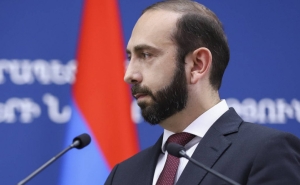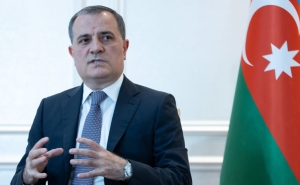 Khojaly: The Azerbaijani Myth of a ''Genocide''
Khojaly: The Azerbaijani Myth of a ''Genocide''
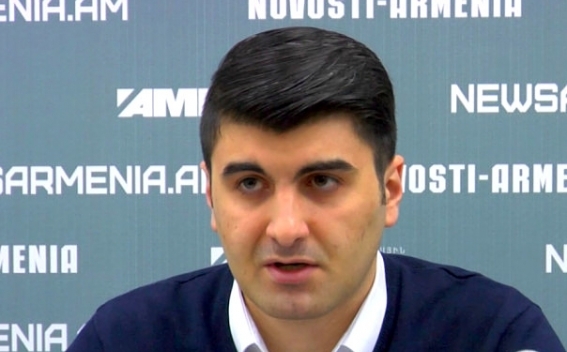
The Karabakh conflict differs from other ethnopolitical conflicts in many respects: the emergence of conflict, its legal aspect, the negotiation format, etc. But one of the key differences, unfortunately, is the level of distrust and hostility between the parties. Of course, there have been great many conflicts and bloodshed in the world, but the Karabakh conflict has been going on for about 30 years, and, as the Azerbaijani aggression in April 2016 showed, this conflict is far from being frozen, and there is still a possibility of new escalations.
In such conditions, Armenia, Artsakh, and Azerbaijan, of course, conduct both an information war and propaganda. But it should be noted that in the propaganda context, Azerbaijan has crossed all the red lines, and has used its anti-Armenian rhetoric not only in official speeches (for example, the territorial claims against Yerevan and other parts of Armenia in Aliyev’s recent speech), but even in Azerbaijani school textbooks and children's literature (you can read in more detail about this on Azerchild.info).
In the propaganda arsenal of Azerbaijan a special place is occupied by the events in Khojaly, which in recent years official Azerbaijan has been trying to present to the world community as "genocide of Azerbaijanis". For this purpose, Baku has worked hard, and is still trying to find "witnesses", to organize information companies, promote various resolutions, etc. These efforts, despite their absurdity, sometimes nevertheless give fruits and, worst of all, even the Azerbaijanis began to believe in this nonsense.
The Azerbaijani society for years has been told different myths about the "atrocities of Armenians", and, as it might be expected, Baku forgot about the existence of the testimonies of those Azerbaijanis who immediately after the Khojaly events told about what actually took place and were well aware of the fact, what was going on there. And all these evidences contain a number of important facts, which they prefer not to remember. For example, before the Khojaly events in Baku, a meeting of the National Security Committee took place, during which it yas decided not to evacuate the residents of Khojaly, despite the fact that the self-defense forces of Karabakh left a humanitarian corridor for Khojaly residents, and moreover, most of them safely reached Aghdam.
In addition, the area where the bodies of the Khojaly people were found was approximately 700 meters away from the Azeri military post and was under their control. There are many questions in connection with the Azerbaijani myth about the events of Khojaly, and there are many evidences (including from the Azerbaijanis themselves), thanks to which the Azerbaijani official version of those events does not stand up to any criticism. Even the president of Azerbaijan, Ayaz Mutalibov, who was in power at that time, gave an interview to an independent Czech journalist Dana Mazalova in April 1992, after which he became a victim of persecution in his own country. In the interview, Mutalibov not only acknowledged that the Armenian side left the humanitarian corridor for the Khojaly people, but also linked the Khojaly events with internal political processes: "As Khojaly residents used to say everything was organized in order to have an excuse for my resignation... We are just tired of this confrontation, ordinary people die every day, while someone builds their ambitions on this, promoting their political goals."
It should be noted that the Azerbaijani policy of "demonizing" Armenians is a stick with two ends. On the one hand, an image of the enemy is being created, which the Azerbaijani authorities use very cleverly to preserve their power. But, on the other hand, the Armeniaphobia, has a negative impact on the mental health of the Azerbaijani society, as a result of which there appear people like Safarov who can kill sleeping Armenians with their axes or cut off their heads...
Instead of creating myths about the events in Khojaly and harassing the minds of their fellow citizens, the Azerbaijani authorities could also talk about those 700 inhabitants of Khojaly who did not leave the village and were taken to the capital of Karabakh, Stepanakert, where they were provided with food and medical assistance. And two days later they were safely transferred to the Azerbaijani side without any preconditions...
-
 17:08
17:08The regular session of the Anti-corruption Policy Council takes place in Jermuk
-
 15:05
15:05The Prime Minister sends congratulatory messages to the supreme leader of Iran and the President of Iran
-
 11:11
11:11Armenia sends earthquake aid to Turkey
-
 10:43
10:43Commemoration of the Pontiff St. Sahak Partev
-
 09:16
09:16Some roads are closed and difficult to pass in Armenia
-
 19:55
19:55Phone conversation of the Foreign Minister of Armenia with the U.S. Assistant Secretary of State for European and Eurasian Affairs
-
 18:30
18:30Prime Minister Pashinyan and President Khachaturyan meet
-
 18:20
18:20Ararat Mirzoyan with Co-Chairman of the OSCE Minsk Group of France Brice Roquefeuil
-
 17:01
17:01Humans could land on Mars within 10 years, Musk predicts
-
 16:45
16:45France, US urge 'immediate' end to Nagorno Karabakh blockade
-
 16:01
16:01Blockaded Nagorno Karabakh launches fundraiser to support quake-hit Syria
-
 15:59
15:59Earthquake death toll in Turkey rises to 18,342
-
 15:43
15:43Ararat Mirzoyan Held a Telephone Conversation with Sergey Lavrov
-
 15:06
15:06French president rules out fighter jet supplies to Ukraine in near future
-
 14:47
14:475 Day Weather Forecast in Armenia
-
 14:44
14:44President Vahagn Khachaturyan wrote a note in the book of condolences opened in the Embassy of Syria in Armenia
-
 14:20
14:20Azerbaijan’s provocations impede establishment of peace and stability – Armenian FM tells Russian Co-Chair of OSCE MG
-
 12:57
12:57France representation to OSCE: Paris calls on Azerbaijan to restore freedom of movement through Lachin corridor
-
 11:40
11:40Command of Kosovo forces highly appreciated preparation of Armenian peacekeepers
-
 10:16
10:16The United States withdrew from sanctions against Syria for six months the provision of assistance after the earthquake
day
week
month
Humidity: %
Wind: km/h



